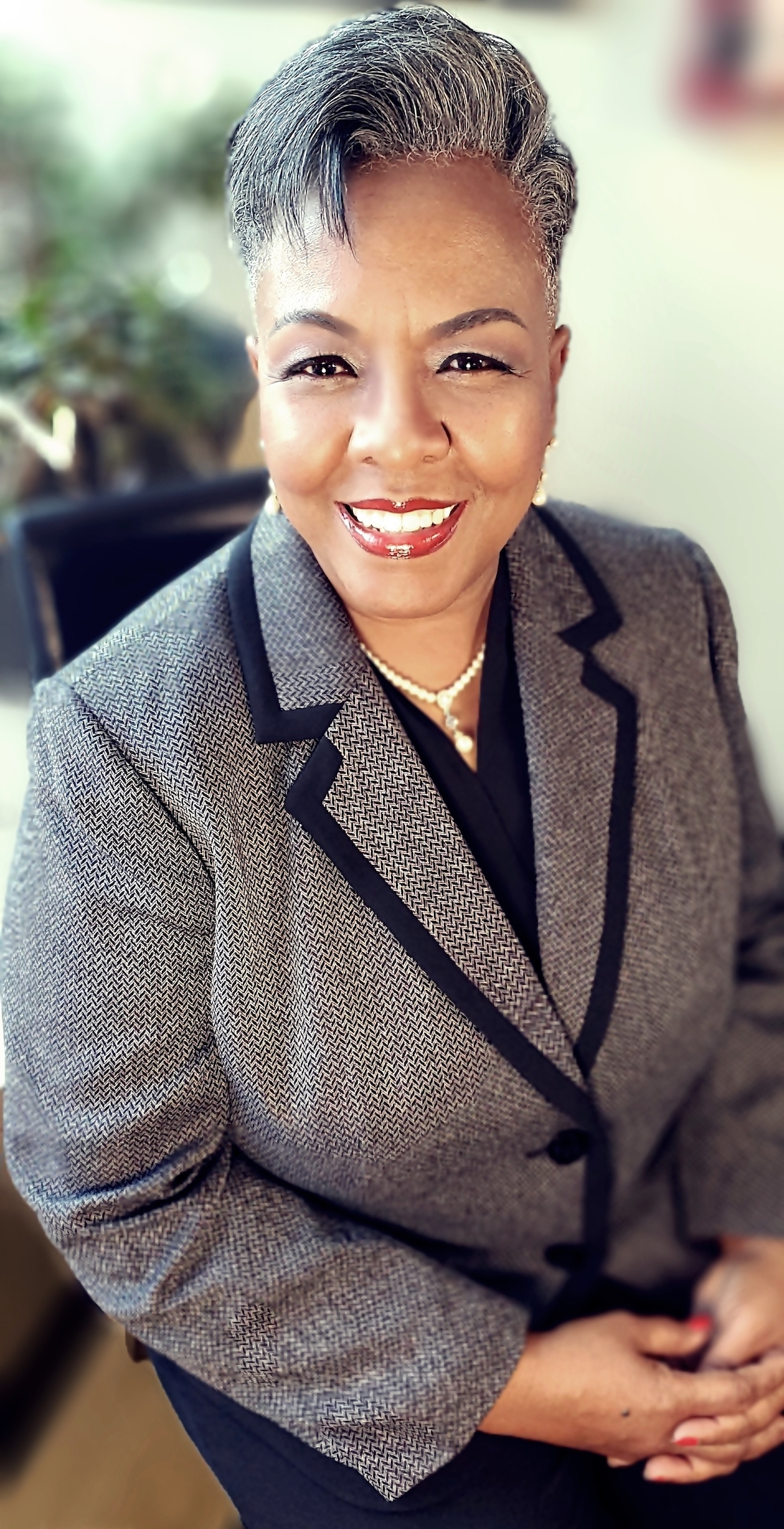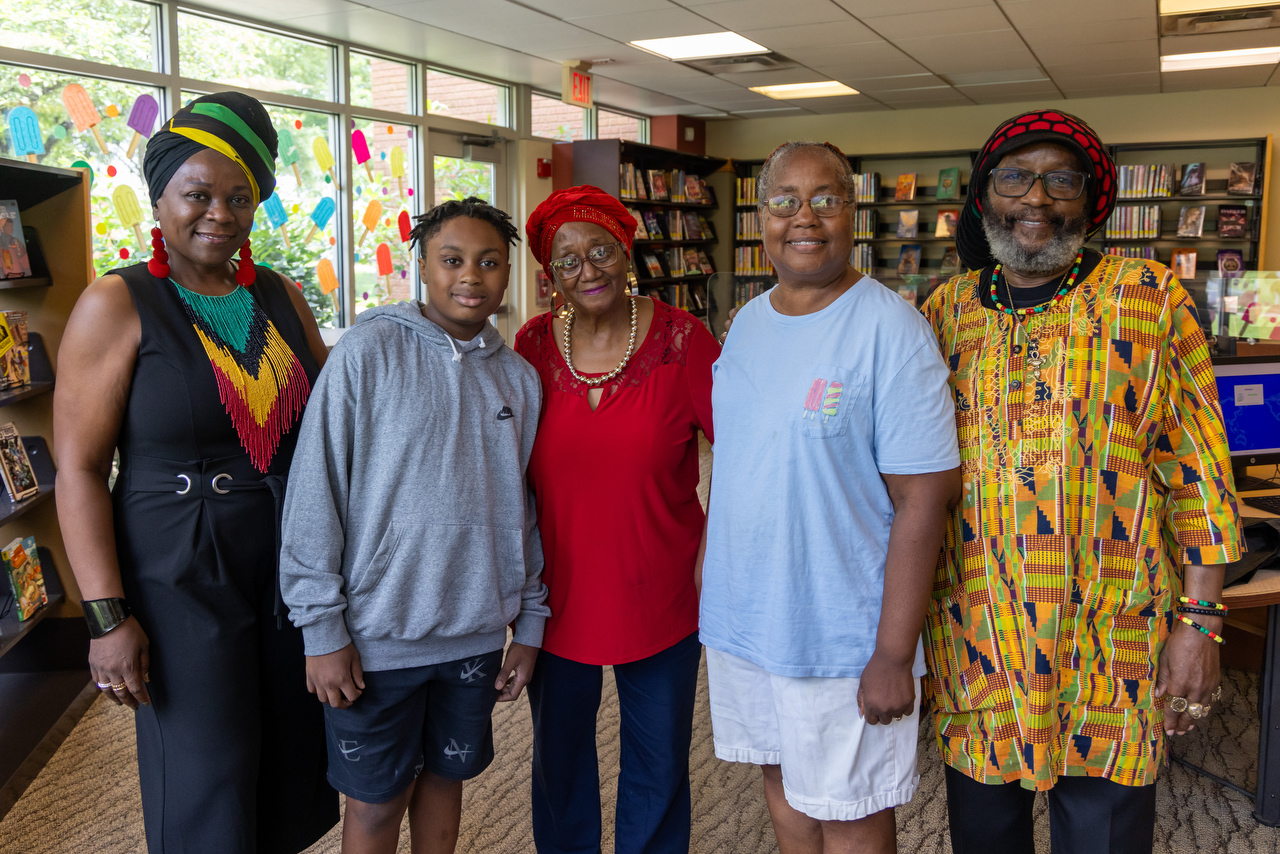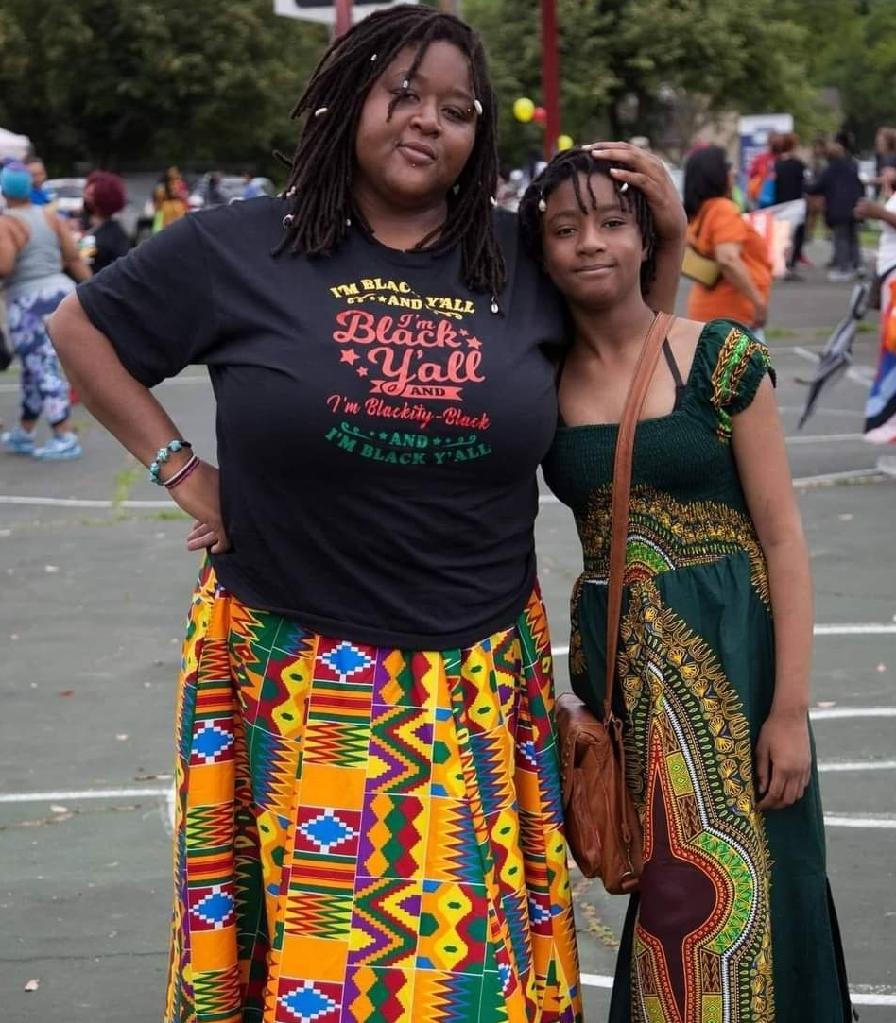Co-authored by Reegan Davis Saunders and Jillian Holness for Signal Akron
Regennia N. Williams has probably been familiar with Juneteenth for longer than most of her fellow Northeast Ohio natives.
“I heard of Juneteenth just over 30 years ago, when I started to teach the survey courses in African American History at Cleveland State University,” said Williams, who is now the associate curator of African American Community Partnerships, Programs, and Traveling Exhibitions and the Distinguished Scholar of African American History and Culture for the Cleveland History Center of the Western Reserve Historical Society.

“I read about the southern roots of the holiday while preparing my lectures on the post-Civil War era in our history,” Williams said. She remembers attending a first Juneteenth event at Cleveland’s Euclid Avenue Congregational Church more than 20 years ago.
“Juneteenth is important to me because it reminds me that Black freedom from chattel slavery was not free, it did not happen overnight, but it is worth celebrating,” Williams said. “The holiday also reminds me of the importance of knowing, exercising, and protecting your rights and those of others.”
What does Juneteenth mean to you?
Is it a celebration? A solemn remembrance? A day off from work? Or do African Americans feel not enough has been done in the space of U.S. race relations to relax?
Signal Akron and Signal Cleveland asked some residents for their perspectives.
It takes a village
For Maple Valley resident Shareefah Wahid, Juneteenth is all about sharing Black history with Akron’s youth.
“It’s not just about a big celebration and a big party. Really, it was our independence,” Wahid said.

Wahid, 73, has been organizing Juneteenth events for about 20 years. This year’s calendar includes a Juneteenth reenactment at the Maple Valley Branch Library, 1187 Copley Rd., at 3 p.m. on Tuesday June 18.
In addition to the Juneteenth reenactment, Wahid and a few other participants will act out five-minute skits depicting famous Black leaders – Malcolm X, former President Barack Obama, Rosa Parks, Harriet Tubman and Sojourner Truth. The goal is to instill the significance of the historical figures in youth. Wahid’s grandson, 11-year-old Hasan Wahid, will play a soldier in the Juneteenth skit.
“This is good for him because they don’t really feel what happened that day. They just hear it,” Wahid said.
Beyond the sharing of history, Juneteenth in Akron is about food and music, Wahid said. She emphasized the importance of song as a way to bring people together, specifically noting the 1985 “We are the World” single.
At the Juneteenth reenactment, Kwame Williams, a deacon at Mount Calvary Baptist Church and the event emcee, will play the drums with his family.
Kwame Williams has worked with Wahid on Juneteenth festivities for the past two decades. They are both a part of “the village” — the Village Keepers of Ohio Inc., he said. The group’s elders’ council provides community support and plans celebrations for Juneteenth and Kwanzaa.
Kwame Williams, 72, said that the concept of retirement as a period of nothingness is “insanity.”
“A lot of the elders, once they get there, that is a reservoir of talent and expertise untapped,” he added.
That reservoir is available to Akron’s youth, and it is time for young people to step up to the plate, Wahid said.
“We’re burying soldiers every month. We’re burying soldiers like us,” Wahid said. “We’re leaving here, so we need y’all young people. I’m glad you’re doing what you’re doing.”
Juneteenth is ‘a Sankofa moment’
In a way, the spirit of Juneteenth was woven into Akron native Marilyn Sanders Mobley’s life long before she heard the word for the first time. Her parents, who were active in the NAACP, taught her “about the need to connect the past with the present.”
And that’s part of the reason why Ralph Ellison’s novel “Juneteenth,” published in 1999, resonated with her. The book was published after Ellison’s death, but he had chosen the epigraph, a few lines from a T.S. Elliott poem: “This is the use of memory: for liberation, not less of love, but expanding of love beyond desire, and so liberation from the future as well as the past.”

Today, Mobley is an emerita professor of English and African American Studies at Case Western Reserve University (where she was also the first chief diversity officer), a consultant and ordained minister.
“For me, the Juneteenth celebration is what I call a Sankofa moment,” she said. “Sankofa is a Ghanaian symbol from the Akan people. It’s a bird. The bird’s body is pointing toward the future, but the bird’s head is pointed toward the back and lifting an egg off of its back. The symbolism is that we have to go back and fetch the past or be familiar with the past to go forward.”
She hopes that young people, growing up in a time when some want to obscure history and limit access to books, embrace the past as they plan for the future.
“I think about what the scholar Fredric Jameson said, ‘Always historicize’,” she said. “So I just want to be sure that people bring a historical perspective.”
“We have freedom, but in the midst of our freedom, we’re in a continuum of struggle because there is poverty, health disparities, educational disparities. And I just want to be sure that this generation knows this struggle continues. Dr. King said that change never rolls in on wheels of inevitability, that it takes struggle.”
‘Lots of kids, good food and good music’
Akron Juneteenth has been celebrated for longer than 15-year-old Zaela Sutton has been alive.
The city is now in its 26th year of celebrating the abolishment of slavery with a weekend filled with activities, performances and food.

Sutton remembers thinking it was pretty cool learning about the holiday for the first time and celebrating with the community.
“I remember there were lots of kids, good food and good music,” Sutton said. “I had a pretty good time.”
Sutton’s mom, Fela Sutton, is the lead coordinator for Akron Juneteenth and first told her daughter about it in 2018.
“It’s important for her to know her history,” Fela Sutton explained. “All of the slaves weren’t free after the Emancipation Proclamation like she was told in school. Juneteenth celebrates the last slaves that were free in Galveston, Texas.”
As a sophomore at Akron School for the Arts, Sutton doesn’t recall a time when her teachers mentioned Juneteenth.
“I think they [teachers and school board] should make a whole history lesson about it like they do with slavery and talk about how they were freed,” Sutton said.
Sutton also believes that more Akronites should celebrate and appreciate the holiday.
“It shows Black people in a more good light and reminds them that they’re not just freed slaves, they’re actual people,” Sutton said.
Expressing joy in the midst of struggle
Growing up in Indiana, Joy Bostic didn’t know about Juneteenth. But in her family, “There were discussions and tensions around the Fourth of July, and what that meant for African Americans. … We always went to the fireworks. We always wore our colors, etc., because we saw ourselves as included and instrumental.”

Today, Bostic is an associate dean at Case Western Reserve University and director of the school’s African and African American Studies Minor. Juneteenth reminds her of those family discussions from her childhood.
“What Juneteenth really represents, for me, is the complexity around what does it mean for Black people to continue to struggle for freedom? To continue to survive and thrive, to create and innovate and to contribute … in the midst of the pushback [from] those who … still have strong allegiances to white supremacy?”
“So the celebration is always about how we express and embrace joy, even in the midst of struggle and denial.”
Bostic generally attends events at Case and elsewhere around the holiday (this year she’ll be in New York), but reserves the day itself for rest and reflection.
“I love preparing traditional foods such as red hibiscus drinks and rice that provide a sense of solidarity with others celebrating across the city, state and nation,” she said. “It also helps me to connect to those who have come before me. Rest itself is an important act of agency and resistance. It is restorative and helps me to refuel to continue to work for freedom and justice throughout the year.”


